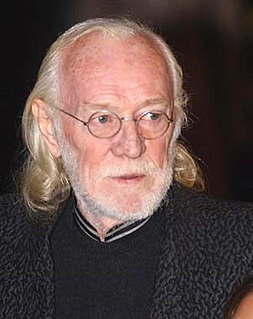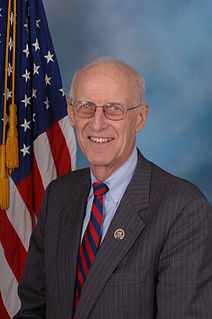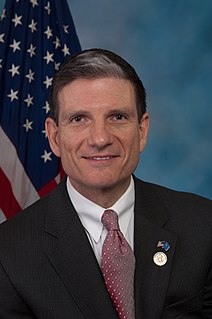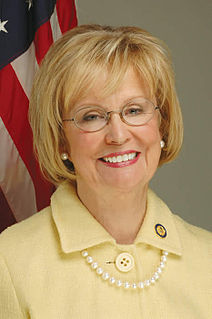A Quote by Greta Thunburg
The climate crisis is both the easiest and the hardest issue we have ever faced. The easiest because we know what we must do. We must stop the emissions of greenhouse gases. The hardest because our current economics are still totally dependent on burning fossil fuels, and thereby destroying ecosystems in order to create everlasting economic growth.
Quote Topics
Because
Both
Burning
Burning Fossil Fuels
Climate
Create
Crisis
Current
Dependent
Destroying
Easiest
Economic
Economic Growth
Economics
Ecosystems
Emissions
Ever
Everlasting
Faced
Fossil
Fossil Fuel
Fossil Fuels
Fuels
Gases
Greenhouse
Greenhouse Gases
Growth
Hardest
Issue
Know
Must
Order
Our
Still
Stop
Thereby
Totally
Related Quotes
I know we need more nuclear power in order - nuclear power, after all, is not dependent on fossil fuels and emits no greenhouse gases. I believe we're going to be able to have coal-fired plants that have zero emissions. We need to work on carbon sequestration technologies. I mean, there's a lot we can do together and achieve the objective, which a lot of people want, which is the reduction of greenhouse gases, and at the same time, have viable economic growth.
CO2 is a minor player in the total system, and human CO2 emissions are insignificant compared to total natural greenhouse gas emissions. Therefore, lowering human CO2 emissions will have no measurable effect on climate, and continued CO2 emissions will have little or no effect on future temperature....While controlling CO2 emissions from burning fossil fuels may have some beneficial effects on air quality, it will have no measurable effect on climate, but great detrimental effects on the economy and our standard of living.
Climate change is not a major issue because it will cause sea level rises or temperature increases, since we know how to live at higher elevations and regulate the temperature within our homes. It is a major issue because ecosystems are finding it difficult to adapt to the rapidity of the climate and environmental changes and are dying off, thereby accelerating the species extinction that is already underway due to our consumption habits.
If we want energy security, then we have to reduce our appetite for fossil fuels. There's no other way. Other issues may crowd the headlines, but this is our fundamental challenge. Big challenges require bold action and leadership. To get the United States off fossil fuels in this uneasy national climate of terrorism and conflict in the Persian Gulf, we must treat the issue with the urgence and persistance it deserves. The measure of our success will be the condition on which we leave the world for the next generation.
The gradual depletion of the ozone layer and the related "greenhouse effect" has now reached crisis proportions as a consequence of industrial growth, massive urban concentrations and vastly increased energy needs. Industrial waste, the burning of fossil fuels, unrestricted deforestation, the use of certain types of herbicides, coolants and propellants: all of these are known to harm the atmosphere and environment.
The climate crisis is the greatest challenge humanity has ever faced. From not only the warming of the earth with higher global temperatures, but also from strengthening storms and expanding droughts to melting ice and rising seas, the costs of carbon pollution are already being felt by governments, corporations, taxpayers and families around the world. The climate crisis will affect everything that we love and alter the course of our future. Now, more than ever, we must come together to solve this global crisis. We must act decisively, rise to the occasion and solve this monumental challenge.




































